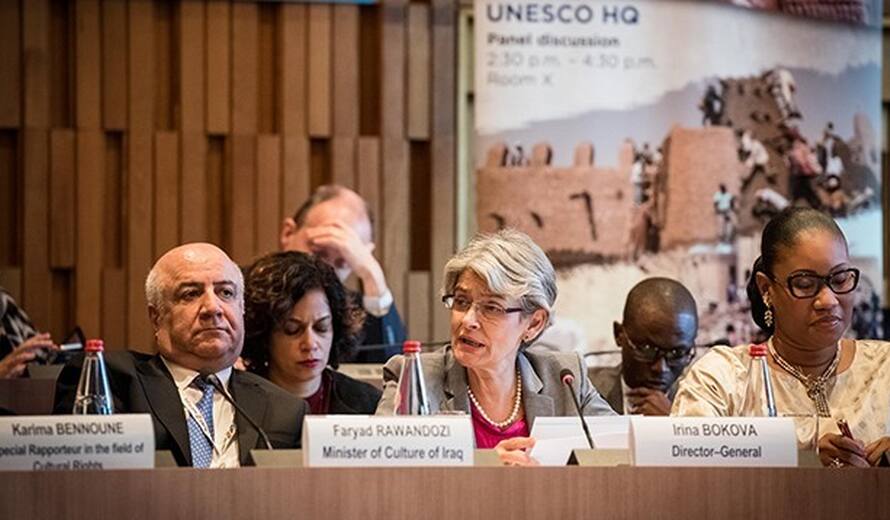UNESCO and Partners stand against Cultural Cleansing and Violent Extremism
On the occasion of UNESCO’s General Conference, an international high-level panel on 6 November 2017, brought together Ministers from Iraq and Mali, the Chief Prosecutor of the International Criminal Court (ICC) and international experts to strengthen cooperation in response to cultural cleansing and violent extremism.
Opening the panel, UNESCO Director-General, Irina Bokova, highlighted the key role of heritage protection in forging new strategies for peace and social cohesion in situations of conflict.
“Violent extremists target culture because they know that cultural heritage is a force for resilience. They attack heritage and persecute communities in an overall strategy of ‘cultural cleansing’, because they know the power of culture to delegitimize their claims and false promises. In the face of this threat, we must respond with the ‘hard power’ of military measures. This also calls for the ‘soft power’ of culture and the transmission of history, as a moral and intellectual shield against hatred,” she said.
“Extremists have destroyed many archaeological sites, religious buildings, museums and libraries across Iraq and communities have been deeply affected by this. Rebuilding this cultural heritage is the way for people to leave behind what they have suffered and open a new door; it is essential to national and local reconciliation”, said Faryad Rawandozi, Minister of Culture of Iraq.
“The attacks on Mali’s cultural heritage, whether mausoleum or ancient manuscript, were attacks on our beliefs and way of life in an attempt to undermine us. Our response is to engage everyone in safeguarding, revitalization, rehabilitation and education for the future of Timbuktu”, stressed N’diaye Ramatoulaye Diallo, Minister of Culture of Mali.
Ms Bokova also underscored recent, historic progress in including heritage protection in strategies for peace and security, recalling the adoption of major UN Security Council resolutions (2199, 2347, 2354 and 2379) on the role of heritage protection in the event of armed conflict.
The Director-General reiterated the importance of UNESCO’s cooperation with the ICC, referring to the conviction of Ahmad Al Faqi Al Mahdi for the destruction of heritage in Timbuktu, the first ICC trial that qualified the deliberate destruction of cultural heritage as a war crime.
